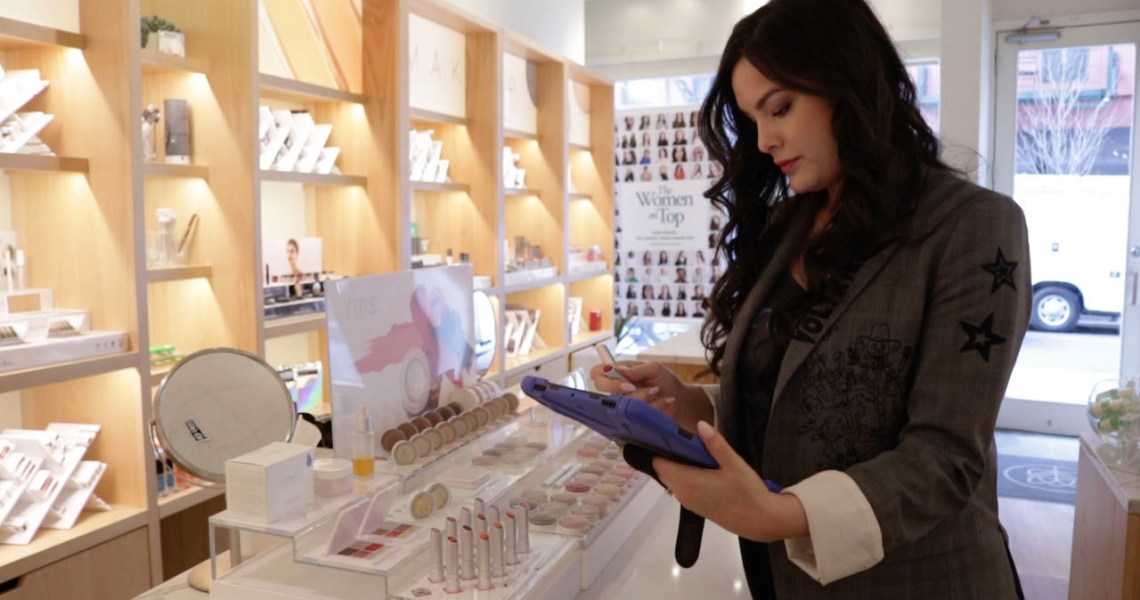Beauty stores may be reopening in some states, but brands are ramping up their virtual consultations as they bank on e-commerce for the long haul.
To make up for the lack of the in-store services that drive sales, virtual consultation technology on beauty sites surged at the start of the shutdown. Companies that recently launched virtual consultations include Glow Recipe, Huda Beauty, BareMinerals, Clarins and Dermalogica, to name a few. These online features are set to become a permanent fixture of the digital beauty shopping experience as they encourage higher conversion rates with direct links to commerce.
Brands typically employ third-party platforms to integrate consultations into their site; virtual video chat startup Hero has added Deciem, Cos Bar, Innersense and Laline to its roster of clients during the pandemic.
“Beauty has been one of our standout categories since Covid-19 hit, due to a confluence of several trends at once: a growing interest in self-care, a surge in online shopping and a craving for human interaction at a time when most of us are limiting our time outside of the home,” said Hero co-founder Adam Levene.
Credo Beauty had been a client before the pandemic hit, and its COO Annie Jackson said that Hero drives between 12-15% of the brand’s digital business now. The retailer kept all 60 of its physical store employees employed during store closures by having them answer questions through the Hero app, which she said leads to an average of $20 higher basket size than online shoppers who do not use the virtual consultations.
Hero said that its beauty clients have seen a 2.5-fold increase in chats since the pandemic hit, with 25% of all virtual shopping sessions resulting in a sale. The platform allows consultants to drop recommended items directly into a user’s shopping cart. The company reports that its beauty clients have had a 388% increase in total sales since the start of the Covid-19 shutdowns, along with a 32% increase in their conversion rate.
Other brands are also seeing sales results from their implementation of virtual consultations. Tula, for example, launched its skin-care advisor chat with a member of its nine-person retail team on March 30 and has seen a 28% increase in basket size for customers that engage with the feature, according to a brand spokesperson.
DTC beauty brand Trestique launched a virtual consultation tool last week, allowing users to do an immediate live video chat or schedule an appointment to receive a shade match or a makeup tutorial. The brand added the feature after being inundated with product recommendation requests, said Trestique co-founder and co-CEO Jenn Kapahi.
“We had an uptick in our selfie shade match requests; they were starting to come in by the hundreds. We basically only had one dedicated person [to this]. We’re a team of 10,” she said. “It started as a result of what our customers were asking for and just the volume that we were seeing.”
The brand also features a live chat tool using customer service platform Gorgias, which had been a part of the site prior to the launch of the virtual video consultations. Previously used for order inquiries, Gorgias is now being used more for pre-purchase product advice, said Lucas Walker, the startup’s manager of strategic partnerships.
During the shutdown period, usage of live chat has increased by 5% among beauty brands using Gorgias. In addition, 28% of chats started by customers who had not yet made a purchase drove a sale, said Walker.
For brands planning to remain heavily reliant on e-commerce, virtual consultations — especially video chats — offer the human interaction that a brand typically loses though digital shopping.
“Having the ability to really cultivate relationships as a small brand reliant on loyal customers is the thing that will make or break your brand in the future,” said Kapahi, who noted that video consultations are “offering that human touch that everybody is craving and missing.”




